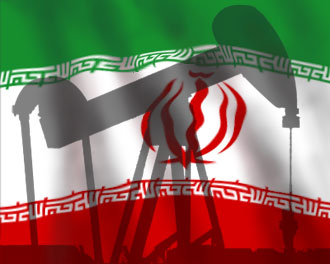Azerbaijan, Baku, Sept. 6 / Trend, S. Isayev
IRGC (Islamic Revolutionary Guards) may object to any type of arrangement that entails ownership of the oil and gas fields or their revenues by a foreign company, professor of economics at U.S. Northeastern University, Kamran Dadkhah told Trend.
He was commenting on the possibility of foreign companies coming back to Iran, for investing in country's oil and gas fields.
"International companies would like to invest in the development of oil fields if they can (at the least) partially own the field and its output. Currently Iranian contracts are based on buy-back arrangement. That is, after the company completes the project and develops the field, the Iranian government takes over and owns the project," Dadkhah said.
"The company will get compensated for its investment through time by receiving a portion of the output, or its value. As a result it may take decades before a company recoups its investment," he explained.
"Apparently, the government of Iran is consulting with industry experts to figure out an acceptable arrangement," Dadkhah said.
He went on to note that an acceptable arrangement would require the Iranian government to agree to the joint ownership of the field or at least the indefinite sharing of revenues.
Speaking of sanctions imposed on Iran, Dadkhah noted that in order for Iran to develop and utilize its oil and gas fields and modernize these industries, sanctions have to be lifted.
"With sanctions in place, international companies will be reluctant to invest. Even if some companies from China or India approach Iran, it is highly unlikely that the project gets off the ground let alone coming to fruition," he underscored.
Another problem, according to Dadkhah, is that many companies do not trust the Iranian government and its commitment to property rights and maintaining a business friendly environment.
"In short, Mr. Zanganeh (Iran's Oil minister) and Mr. Rouhani (Iran's president) have a long way to go and face huge hurdles," Dadkhah said.
On Sept. 4, Iranian deputy oil minister Mansur Moezzemi dismissed previous news on Iran inviting several big foreign companies to invest in Iran's oil and gas sector.
The news was reported by Fars, which said Iran invited Shell (UK), Total (France), Repsol (Spain), Inpex (Japan), OMV (Austria), and Statoil (Norway) to participate in development of oil and gas projects in the country.
Prior to the international sanctions being imposed on Iran, all of the mentioned companies have worked in Iran.
"No private invitations to companies were issued," Moezzemi said. "Iran made an invitation in general, to attract companies for investing in Iran's projects."
He went on to note that cooperation between Iran and international companies is possible on the basis of auctions, within a competitive atmosphere.
Moezzemi also noted that within the cooperation, Iran's national interests should be taken into consideration.
The Islamic Republic has previously dismissed foreign investment in oil industry of the country, because of sanctions of U.S and West after that IRGC supported national companies, started investing to this sphere.






